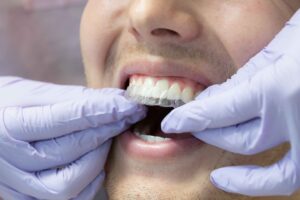 Just about everybody loves sweet, sugary treats. But eating too many sweets isn’t just bad for your waistline. It’s also can harm your teeth.
Just about everybody loves sweet, sugary treats. But eating too many sweets isn’t just bad for your waistline. It’s also can harm your teeth.
In reality, sugar itself isn’t the culprit when it comes to tooth decay. Instead, it’s the hundreds of bacteria that already live in your mouth. Most of the time, these bacteria are inert, meaning they cause neither harm nor benefit to your oral health.
But when you introduce sugar into the delicate ecosystem that exists inside your mouth, these bacteria can feed on these sugars, converting them into acids that can erode the delicate enamel that covers your teeth.
Sugar and Cavities
While sugar itself doesn’t directly harm your teeth, the acids that are produced by the bacteria feeding on sugars can wear down tooth enamel. Once this protective coating is gone, these same acids can go to work directly on your teeth, causing holes — or cavities — to form.
Cavities can expose the nerve beneath your tooth, causing considerable pain. If left untreated, cavities can erode the tooth enough that it needs to be removed.
Restoring Tooth Enamel
The process of acids wearing down delicate tooth enamel is known as demineralization. And the good news is that many types of tooth decay are entirely reversible.
In the saliva that is found naturally in your mouth are minerals like calcium and phosphates, both of which can help repair weakened tooth enamel. Fluoride found in most toothpaste and even municipal water supplies also can help build up lost tooth enamel.
But if you keep eating too many sugary sweets, it can be a losing battle. The best way to give your mouth a fighting chance of fixing the damage caused by eating too many sugars is to limit your sugar intake to a reasonable level.


